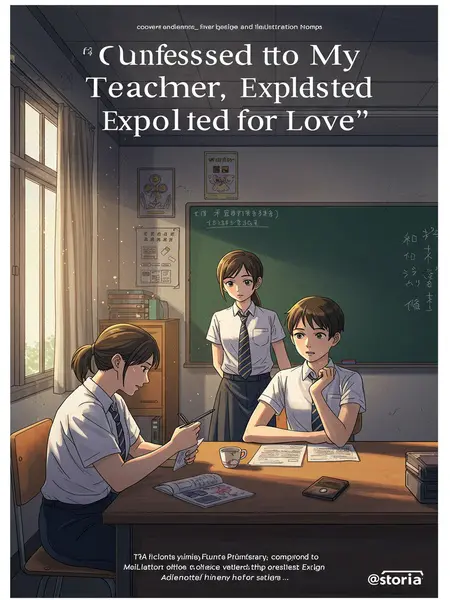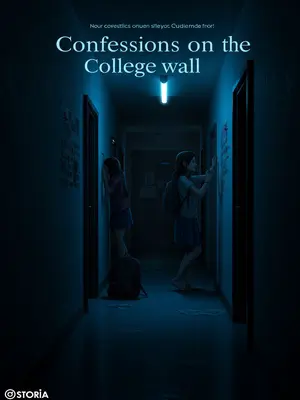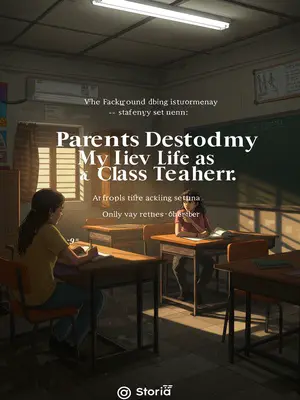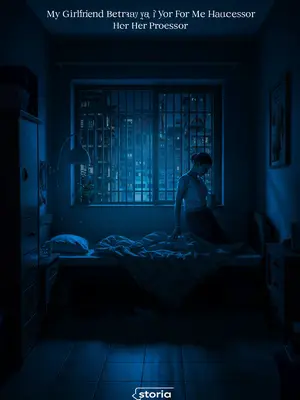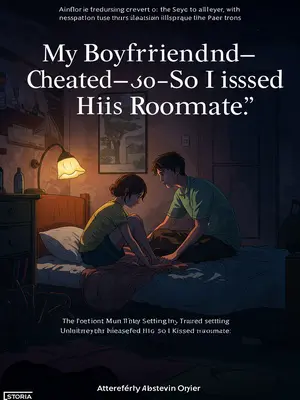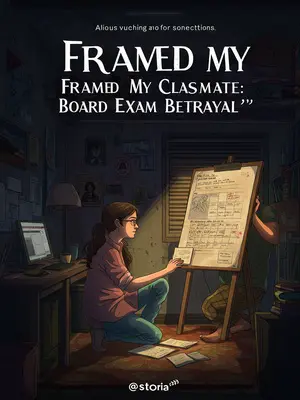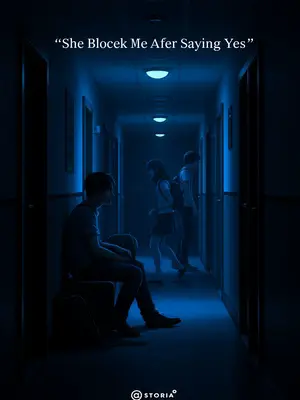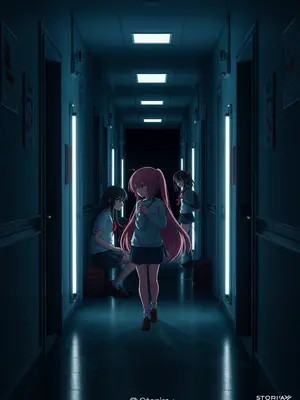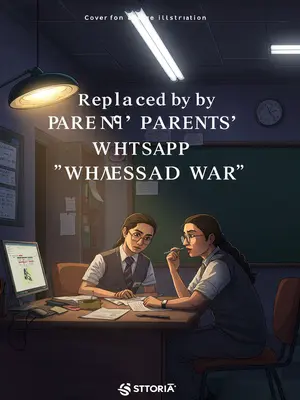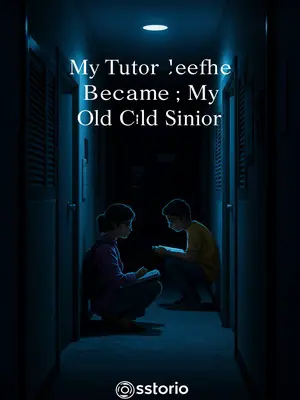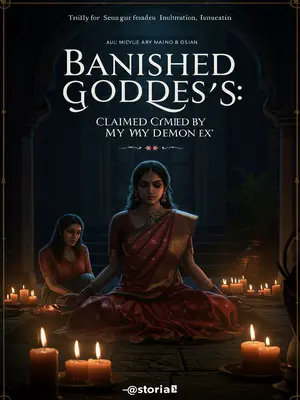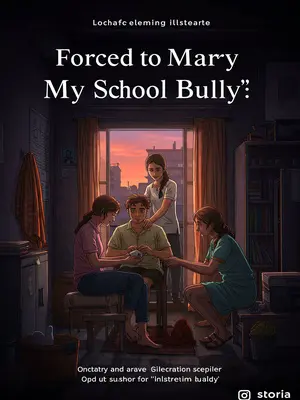Chapter 3: The Goodbye and the Truth
My mother read: "I once thought about telling you, but always hesitated, until the day you came to my house and sat on my bed. You wore beautiful branded clothes, so out of place in my old home. That scene hurt me deeply."
The words were heavy. The class fell silent; even the street noises faded. My mother’s voice shook, but she read on.
The teacher flew into a rage. She raised the letter, waving it. "The girl even went to your house? Sat on your bed?"
Her anger was more embarrassment. Her face reddened, eyes flashing. The students gasped, caught up in the scandal.
I didn’t flinch, looking straight at her. That day, she came for a home visit. My mother had scrubbed the floors, my father borrowed a plastic chair, and I swept the courtyard, hoping everything would be perfect. We didn’t even have a proper glass, so I offered her Amul flavoured milk—my mum’s Diwali factory gift, saved for months. It was a cold day. My parents put the heater in my room for her. She sat, bit the straw, took a sip, and smiled, "Ah, it’s so warm."
Her smile that day was brighter than any heater. I wanted to freeze that moment, but I worried she’d see our poverty—the cracks in the wall, patched bedsheet, neighbours arguing. She never said a word, just smiled.
My mother, reading, was sobbing: "When you sat in my home, I wanted to tell you, I’ve searched for you so many years, chased after you so long."
Her voice broke. The class watched, mesmerized. The world outside—exams, ambitions, gossip—faded away.
"I love you like the wind that travels a thousand miles, like clouds drifting across endless skies, day after day, year after year. That little boy who picked up cardboard to help his family has truly fallen for a girl far beyond his reach. I was once so full of hope, thinking I could change my fate."
Her words were poetry and pain. I remembered afternoons collecting cardboard, calluses on my palms, the dream that love could bridge all distances.
"But when you wore a FabIndia scarf, dressed like a beautiful doll, sitting in my shabby home, I realised you were just a painting that doesn’t belong in my life."
Some girls glanced at their uniforms, self-conscious. The divide between rich and poor, city and small town, felt unbridgeable.
My mother clutched the letter, then slumped softly to the ground. In her breakdown, she muttered, "Kya zarurat thi, beta? Sab ke samne…" One of the girls quickly brought a steel tumbler of water from the teacher’s table, pressing it into her hands.
She wiped her tears and cried, "Why did you write this? You’re a good child—it’s always us dragging you down. Your father and I are the useless ones; you’ve always been such a good kid!"
Some students began to cry, their own struggles reflected in her pain. The teacher stood frozen.
The teacher panicked, helping my mother up, "Aunty, please, don’t do this."
She steadied her, offering a tissue. Her strictness vanished. The girls in the front row exchanged worried looks.
"How is my son not good enough for anyone..." My mother sobbed. "He helped from a young age, took care of me when I was bedridden. I gave him five rupees a day for breakfast and the bus, but he just took a bun and an English book, leaving at five in the morning."
Her words poured out, years of sacrifice and worry finally finding voice. The boys who once mocked me now looked away, ashamed.
"My son is the best child in the world. Why did he write such things? How is he not good enough for others?"
She wept openly. The room was silent but for her sobs.
My father lowered his head, silent, wiping his brow, hiding his tears.
The love letter scattered on the floor, pages fluttering across the dusty tiles. The ink smudged where my mother’s tears fell.
The teacher held my mother, unsure what to do. She bit her lip, her authority useless. She said softly, "I never thought it would turn out like this. Let’s stop reading. None of us need to read anymore."
She took out a tissue and gently wiped my mother’s tears. Then she turned to the class, her voice anxious: "Class, these thoughts are off track, but remember: never look down on yourself because you’re poor. You’re still young—never let low self-esteem take root."
Her words rang with sincerity. Some students looked at her with new respect.
A student blurted, "I’ve been to his house. It’s really poor. If the girl wears FabIndia, their families aren’t even in the same league, right?"
The teacher grew anxious. "In the first thirty years, you look at the father and son; after thirty, the son and father. This letter is wrong. You haven’t even realised your value. Life has endless possibilities—don’t measure your worth by your parents’ status."
I stood up and walked to the dais, legs heavy. My mother looked up at me, love and worry in her eyes.
I picked up the letter, looking at the teacher’s flustered face. In her agitation, my mother’s hair tie slipped, hair tumbling over her shoulders. The sunlight caught the gold thread in her saree, making her look ethereal. Some students gasped.
As her long hair fell, the evening sunlight lit up her face. That year, that day, she was also so beautiful.
The adults thought I didn’t understand, but I knew everything. In the cold wind, I sat crying in the hospital park. She came to me, not yet a teacher—just a girl with a single-shoulder bag, chewing Big Babol. I remembered sitting on the hospital bench, legs swinging, watching her blow a pink bubble and wink at me.
She crouched, offering me a piece of gum. "Beta, why are you crying?"
I pointed at the hospital, sobbing that my mother was leaving me. She patted my head, saying I was overthinking—who could bear to leave such a sweet son? She hugged me, her arms warm. In her embrace, I cried out all my pain. She patted my back gently, the way my mother used to.
I remember the sunlight on her, the jasmine scent, the warmth of her embrace, the taste of her lip balm. After I finished crying, she kissed my forehead and said, it’s okay for a boy to cry if he can’t hold it in, but after crying, he’s still a man.
I picked up the letter, looking into her eyes. She asked, nervous, "What are you doing?"
I said, "I wrote it. I love. I will finish reading it."
She pleaded, "Don’t read. Teacher knows you have good character. This matter ends here. As long as you don’t give this letter before boards, I won’t blame you."
I smiled bitterly. "If I don’t read now, there won’t be another chance."
Since I can’t hide it, why bother? I’ll face it openly.
In front of everyone, I continued: "When you read this letter, I will have already packed my things and left. Please let me say goodbye selfishly, without spending the last half-year with you."
"What do you mean?" she interrupted, agitated. "You’re not coming back next term?"
I didn’t answer, but read: "Sorry, university ka sapna toh abhi mushkil hai. I want to experience youth, but can’t afford to waste four precious years."
The truth was bitter. My mother’s eyes were on me, pain and pride mingling. The students listened, stunned.
The teacher frowned, "Don’t say that. Who says it’s wasting youth? If you work hard and get into the same university as that girl, can’t you spend four years together?"
I read: "Four years from now, you’ll be twenty-eight. The people pursuing you will be settled, I’ll still be a young man starting out."
The whole class was silent. The only sound was someone’s phone vibrating on silent and a distant crow cawing outside, stretching the moment.
Everyone stared. The teacher’s eyes widened.
She asked, shocked, "The girl you mentioned—she’s twenty-four now? Six years older than you?"
"Mm."
A few girls gasped, hands flying to their mouths, while Hari Bhaiya outside the door muttered, "Arre, yeh toh full filmi hai."
"She’s not a student?"
"She is you. The one I love has always been you."
The room was silent, as if the world had stopped. My heart beat faster, but I felt lighter than ever.
The teacher seemed dizzy, almost collapsing as she grabbed the desk. She sat, hands shaking. Some girls covered their mouths, boys wide-eyed as if watching a climax scene.
She panted, staring blankly. I put down the letter and smiled. "Two years ago, you told us, first time as class teacher, you’ll do your best."
"Ten years ago, I told myself, first time someone hugged me and gave me warmth I’ll never forget."
"You may not remember the kindness you gave so casually, but I am that silly, lovesick boy. Fate arranged our meeting, and let me see the distance between us."
"I wanted to finish this term, treating every day as our last together. But since things have come to this, better to put a perfect end."
She swallowed, staring in a daze.
I helped my mother up and bowed deeply to the teacher—a gesture of respect and farewell. My mother leaned on me, face shining with pride and sorrow.
"I won’t bring you any trouble. The board won’t come to you, because when you found my letter, I’d already handed in my withdrawal application to the principal’s office."
Some students gasped, the pain of goodbye settling in. I smiled softly. "I love you, until death."
As I turned to leave, the class teacher’s voice trembled behind me—"Wait…" But I didn’t look back. Somewhere, the temple bell rang for evening aarti, golden light bathing us as if the gods themselves blessed our story.
